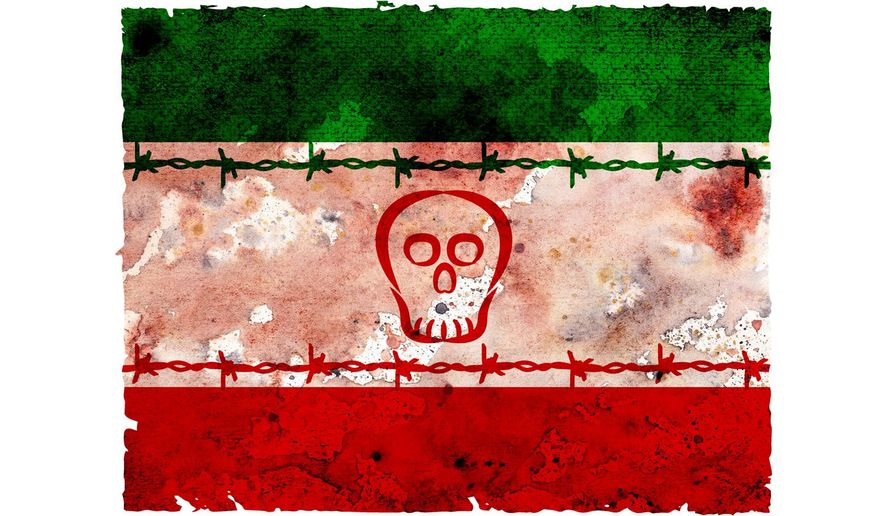Putting Iran’s ‘violence, bloodshed and chaos’ in the spotlight
- Get link
- X
- Other Apps

President Trump deserves credit for his first-ever address to the U.N. General Assembly last week. While his comments on Iran made many of the gathered world leaders and diplomats feel uneasy, his observations were actually spot on.
Since the 1979 Iranian revolution, no U.S. president has ever provided such a poignant description of the theocratic regime in Iran.
“The Iranian government masks a corrupt dictatorship behind the false guise of a democracy. It has turned a wealthy country with a rich history and culture into an economically depleted rogue state whose chief exports are violence, bloodshed, and chaos. The longest-suffering victims of Iran’s leaders are, in fact, its own people.”
One’s view of Mr. Trump’s policies, character, or politics aside, it is almost impossible to disagree with this description because it very much defines the theocracy that has held 80 million Iranians hostage for the past four decades and crushed their aspirations for a better, more prosperous future.
The latest interim report of the U.N. Special Rapporteur on the human rights situation in Iran provides much evidence of the Iranian people’s suffering. Amid all the serious violations by the Iranian authorities that are documented in the report, several paragraphs stand out as they refer to the massacre of political prisoners in 1988, which is one of the worst crimes in Iran’s modern history, though it has been largely ignored.
The report states, “Between July and August 1988, thousands of political prisoners, men, women and teenagers, were reportedly executed pursuant to a fatwa issued by the then Supreme Leader, Ayatollah Khomeini. A three-man commission was reportedly created with a view to determining who should be executed. The bodies of the victims were reportedly buried in unmarked graves and their families never informed of their whereabouts.”
The document also reports that the Iranian authorities are destroying mass grave sites and harassing, intimidating and prosecuting human rights defenders and families of the victims who are seeking the truth and justice. These attempts by the Iranian authorities to subvert justice have also been highlighted by Amnesty International(3), other International NGOs and the Iranian opposition coalition, the National Council of Resistance of Iran (NCRI).
The report concludes, “Recently, these killings have been acknowledged by some at the highest levels of the State. The families of the victims have a right to know the truth about these events and the fate of their loved ones without risking reprisal. They have the right to a remedy, which includes the right to an effective investigation of the facts and public disclosure of the truth; and the right to reparation.” The report goes on to say, “The Special Rapporteur therefore calls on the Government to ensure that a thorough and independent investigation into these events is carried out.”
However, as Mr. Trump pointed out in his speech, the Iranian government is just a facade to mask the true, brutal character of the theocratic regime and thus cannot be trusted to hold the perpetrators of this massacre to account.
In fact, the interim report by the U.N. Special Rapporteur provides independent evidence that Iranian authorities have refused to do so despite a standing U.N. recommendation from 1989 and have instead promoted the perpetrators to senior and ministerial positions, as in the case Hassan Rouhani’s current Minister of Justice Alireza Avayi and the head of one of the largest religious foundations in the country and candidate in the May presidential elections, Ebrahim Raisi.
Consequently, this is a textbook case for international intervention on humanitarian grounds and the U.S., Canada, U.K. and the EU have an opportunity to lead such intervention by making sure that the next U.N. resolution on the human rights situation in Iran calls for an international investigative inquiry into the 1988 massacre.
In his speech, Mr. Trump said, “Oppressive regimes cannot endure forever, and the day will come when the Iranian people will face a choice. Will they continue down the path of poverty, bloodshed, and terror? Or will the Iranian people return to the nation’s proud roots as a center of civilization, culture, and wealth where their people can be happy and prosperous once again?”
That day is already upon us and despite three decades of terror, the Iranian people have chosen to challenge the theocratic regime to hold its leaders to account for one of its worst crimes.
Now the West must decide whether to support or ignore these people in the midst of their struggle for justice.
• David Amess is Conservative MP for Southend West in the U.K. House of Commons and co-chair of the British Committee for Iran Freedom.
LOAD COMMENTS (2)
Click to Read More
- Get link
- X
- Other Apps

Comments
Post a Comment